Exploring Hanoi Railway Station: Your Gateway to Vietnam
Hanoi Railway Station is the best place to start your experiences in Vietnam. You can take the famous 1,700-kilometer Reunification Express train to Ho Chi Minh City or an overnight sleeper train via Sapa’s misty mountains. With MOTOGO Tours, this colonial-era station is where your trip to Vietnam really starts. It’s in the lively center of the country’s rail network, where almost a century of history meets modern travel.
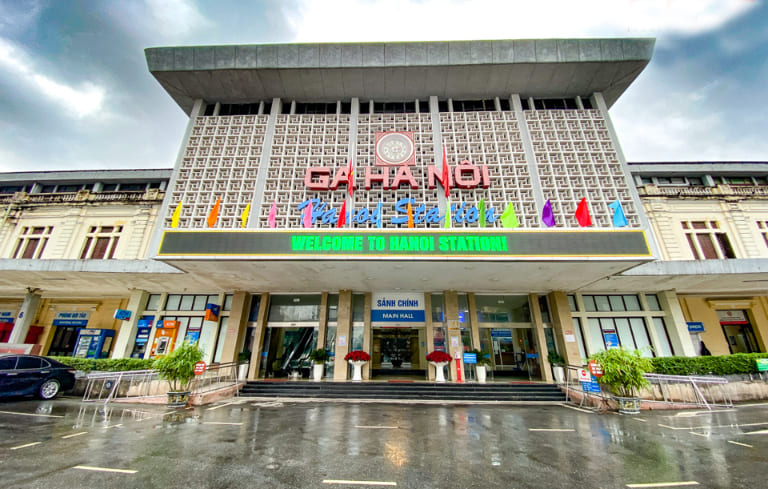
A Century of Stories at Hanoi Railway Station
Originally called Hang Co Station, Hanoi Railway Station is more than just a quick look. It is a strong witness to more than a century of change, survival, and rebirth that is closely linked to Vietnam’s colonial and post-war history. Our trip through time starts in 1902, when the French carefully erected this majestic edifice to show off the best Western design as an important part of the new French-built Indochina railway system.
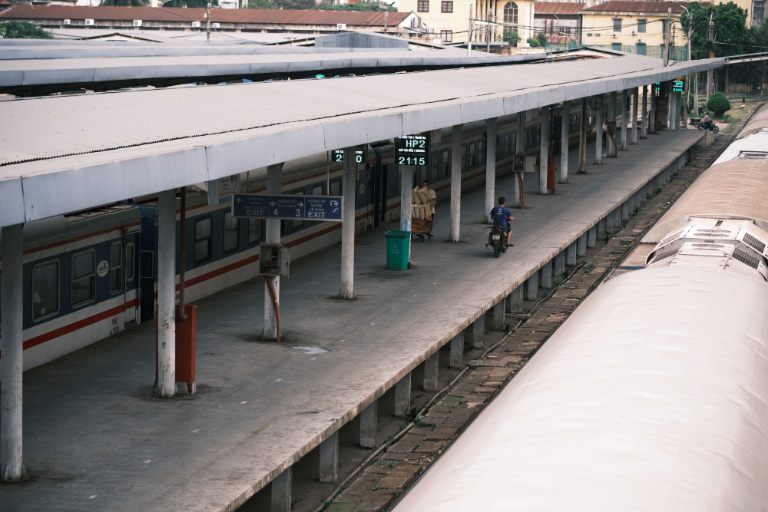
This beautiful building didn’t come out of chaos untouched. The terrible Christmas Bombing assaults of 1972 seriously destroyed its main entrance and central booking hall, leaving a story of survival in the building itself. The beautiful French colonial side wings stayed, but the center was quickly rebuilt in a practical Soviet-era modernist design. This created a striking architectural juxtaposition that combines French relics with aggressive concrete rebuilding.
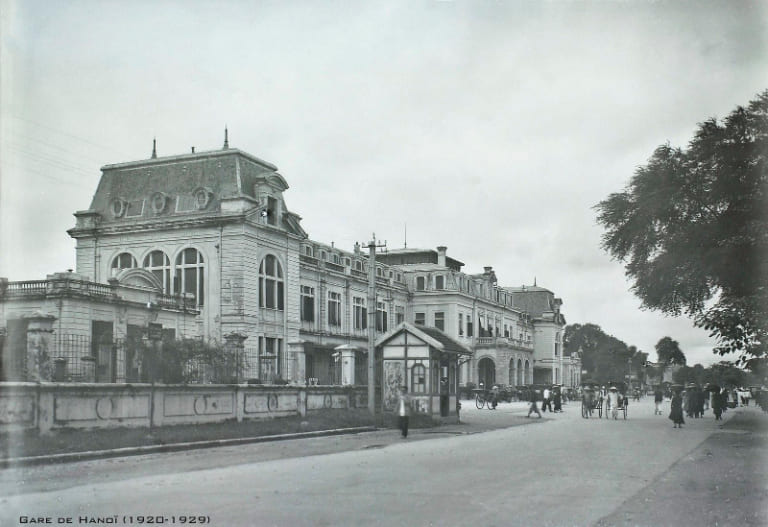
This stunning fusion is a great representation for Vietnam itself: a culture that is robust and adaptable, even in times of trouble and transition. Every cracked tile and repaired facade tells a story that shows how strong and resilient Hanoi is, even when things are tough.
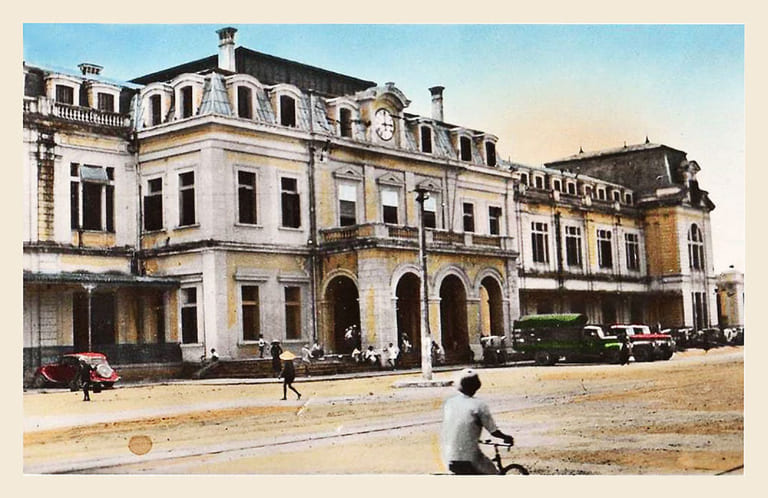
>>> Explore Van Phuc Silk Village in Hanoi: A Guide to Vietnam’s Silk Craft
The Main Terminals of Hanoi Railway Station
Hanoi Railway Station might be confusing for first-time visitors since it has two separate parts, known as Gate A and Gate B, that each serve a different purpose. They are two separate buildings on different streets, so it’s very important to know exactly which gate you need to go to for your specific departure to avoid panicking at the last minute. Let’s talk about where you need to go and why there are two gates.
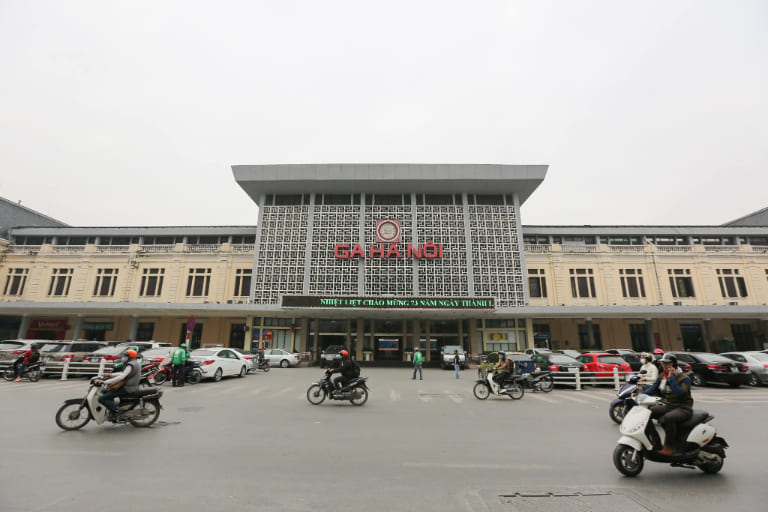
The Le Duan Terminal has amenities and routes to the south.
The major terminal at 120 Le Duan Street is where all southbound trains stop. This includes the whole Reunification Express fleet, which goes to Hue, Da Nang, and Ho Chi Minh City. This architecturally important center has an English-speaking International Ticket Window and great conveniences including ATMs, fast food places like Lotteria, and big waiting rooms. It’s the best place to start your journey along Vietnam’s spine.
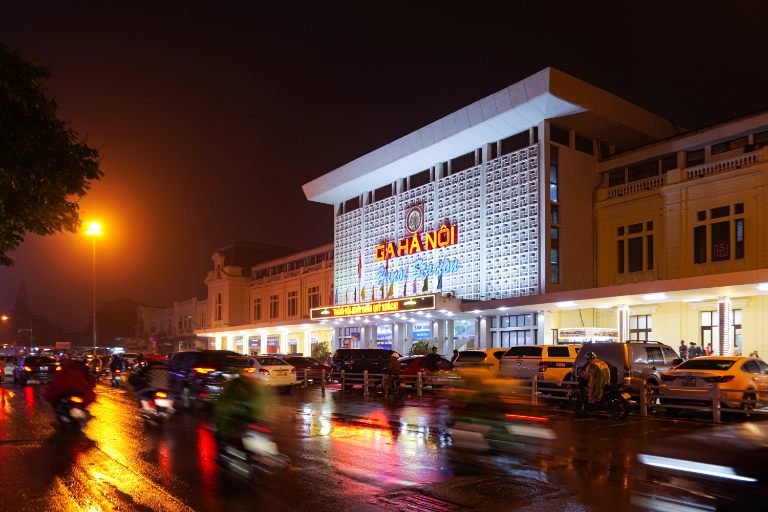
The Northern Terminal on Tran Quy Cap Street
The Le Duan Terminal and Its Amenities A smaller, more rustic annex that mostly handles northbound services, mainly overnight trains to Lao Cai for Sapa, is just a short walk away on Trần Quý Cáp Street. This is probably where you’ll leave from if you’ve booked premium private sleeping coaches. This second terminal is less spectacular and has less amenities, which reminds travelers that “Hanoi Station” is not just one place. This dual-gate arrangement can be confusing, so always double-check the address on your ticket before you leave. & Southern Ways
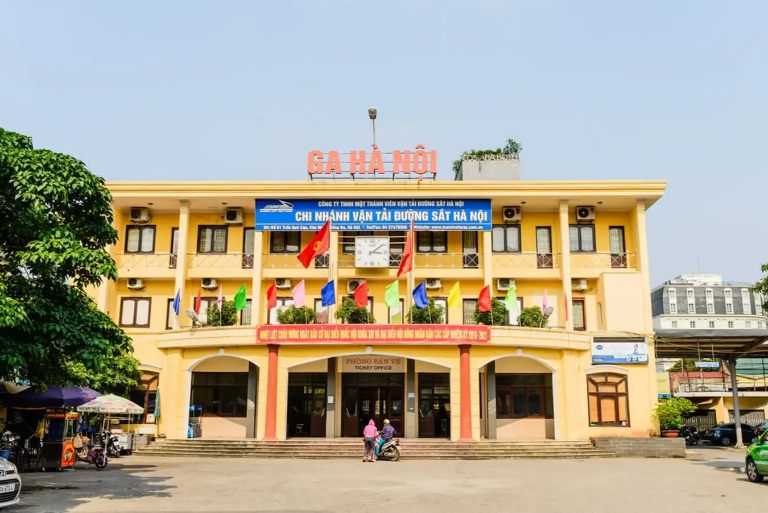
There are two primary terminals at the station: the Le Duan Street hub for north-south lines and the Tran Quy Cap site for northern regions. Both are conveniently located in the city center. No matter how you get there—by car, bus, or guided Hanoi Motorbike Tour—it’s easy and quick to get to Hanoi Railway Station.
Detailed Ticketing and Safety Tips for Your Rail Journey
Traveling by train in Vietnam is usually an amazing and immersive experience, but if you’re not ready, the logistics before you leave from a big hub such Ga Hà Nội can be too much to handle. To have a stress-free start to your trip, you need to know how to buy tickets and what to expect on board.

The Booking Process: Online, International Window, and Securing Sleepers
You can buy tickets in three main ways: through the official Vietnam Railways website or a trusted online agent (best for booking ahead of time during peak season or Tet holidays when sleepers sell out right away), the International Ticket Window at Station A (best for cash payments or questions), or local Old Quarter travel agents for a small fee. Book soft sleeper cabins with four beds early, especially for Sapa routes. These are the most popular and go the fastest, so you may be comfy and ready to explore when you arrive.
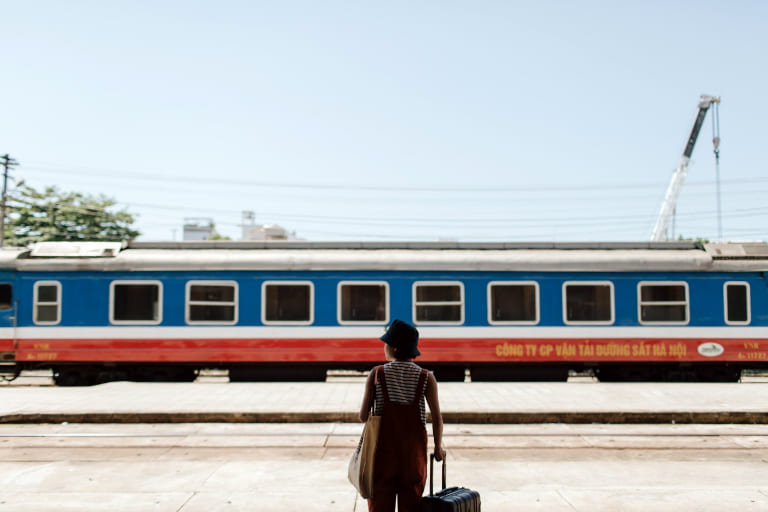
Opening Hours, Amenities, and Key Travel Caveats
Station A’s ticket offices are open from early morning until late evening (see weekend schedules). There are a few ATMs and free Wi-Fi, but not much else. Always pack your own snacks and drinks. There are dining cars, but the food isn’t always good. In shared sleeper compartments, use a cable lock to keep your belongings safe. Bring eye masks and earplugs to block out the incessant light and noise. If you get to the station early and want to tour the neighborhood without carrying your bags, you can use the station’s luggage storage facilities.
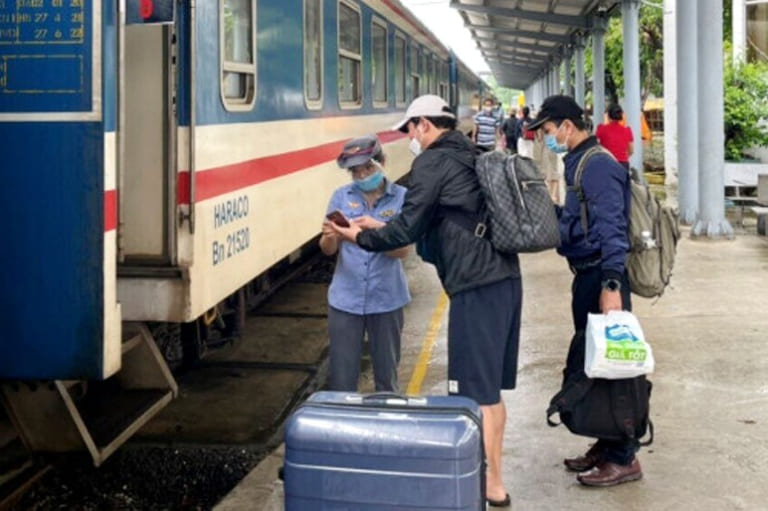
Unique Attractions Near Hanoi Railway Station
The appeal of Hanoi Railway Station goes beyond its platforms; it overflows out onto the streets around it, making some of Hanoi’s most unique and thrilling sights. The station sits in the middle of the city, making it a great starting point for discovering its historical layers and experiencing real local life and food, especially in the neighborhood just north of the station.

Live Dangerously Close to the Rails at Hanoi Train Street
The famous Hanoi Train Street, which is a residential alley that runs absurdly close to active train tracks just north of the station in the Trần Phú–Phùng Hưng neighborhood, has become a global phenomenon. Imagine you’re at a small café on the side of the road, drinking iced Vietnamese coffee or the city’s famous silky egg coffee (made famous by Café Giang), when suddenly the train horn blows and a huge train rushes by just inches away. This is a surreal and exciting moment that shows how adaptable Hanoians are. After that, walk to Hang Gai Street, where you can see silk shops and artisan boutiques that give you a quieter look at Hanoi’s cultural legacy. However, safety rules mean that access to the rail alley is different.
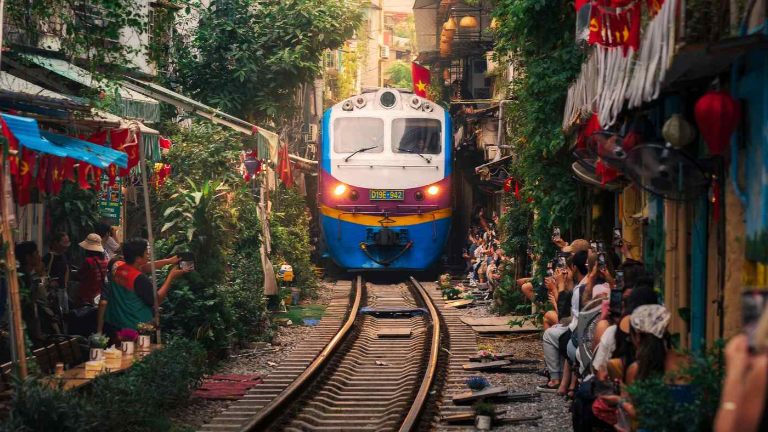
Culinary Delights: Authentic Street Food Adjacent to the Tracks
The streets around the station, especially those that go into the Old Quarter, are full of real Vietnamese street cuisine that is much better than the fast food places inside the station. For Hanoi’s famous delicious grilled pork and noodles, try Bun Cha from small booths nearby. You may also locate roadside Pho vendors near Le Duan or Trần Quý Cáp serving strongly flavored broths in the early morning. Getting a fresh Banh Mi from a seller before you leave is a tasty and useful travel companion!

Historical and Cultural Sightseeing Within Easy Reach
Hanoi Railway Station is in a great spot that makes it easy to see the city. It’s only 2 kilometers from the famous Old Quarter and Hoan Kiem Lake by taxi or Grab, and it’s also a short distance west to the Temple of Literature, Vietnam’s first national university. Hanoi Motorbike Rental businesses near the station let you explore the city at your own pace, weaving between busy streets and secret corners. This is the best way to enjoy the city. These places are great for touring if you get there early or leave late. They provide a nice change from the terminal’s industrial vibe.

Hanoi Railway Station is a great place to learn about Vietnam. Its mixed architecture conveys stories of struggle and resilience, its infrastructure connects tourists to beautiful, varied landscapes, and its rumbling trains bring the goods, people, and dreams that are driving the country’s growth. This wonderfully chaotic center is the right place where colonial history meets the practicality of the communist era and where great trips throughout a united country begin. This is where your Vietnamese story really begins, whether you take the marathon Reunification Express or the overnight sleeper to Sapa. It gives you not only a ticket, but also a deep connection to the core of the country.
Related Posts:
- Discovering the French Quarter Hanoi: A Cultural Journey
- Hanoi Flag Tower: A Symbol of Vietnamese Independence
- Ba Dinh Square: A Journey Through Vietnam’s Historical Heart
- Old City Gate Hanoi: A Historical Landmark in the Heart of the Old Quarter
- Hanoi Ceramic Mosaic Mural: A Masterpiece of Art & Culture














Be the first to comment!